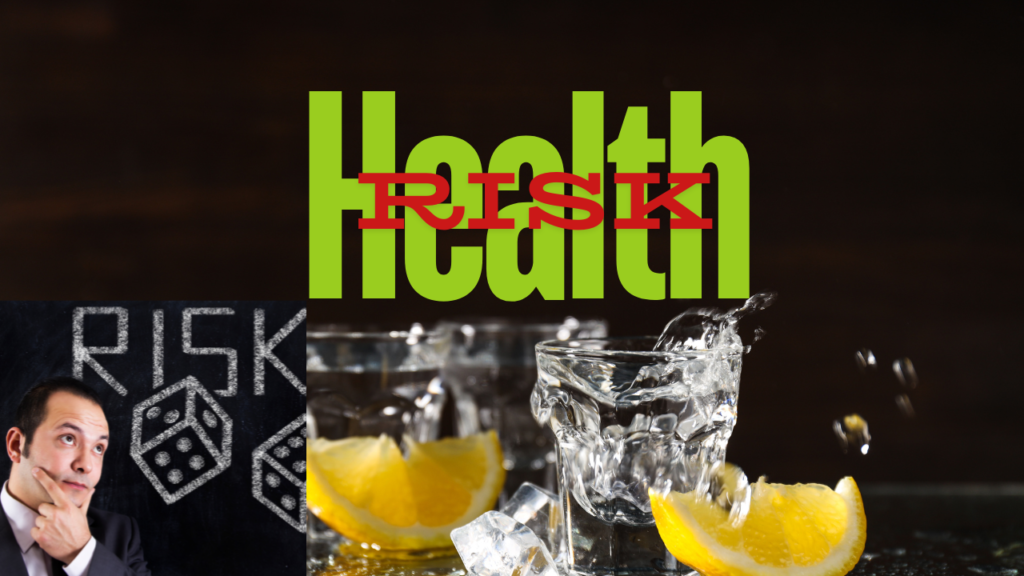Does Vodka Have Important Health Benefits That Outweigh Its Potential Risks?
Recently, I came across several articles discussing the health benefits of certain alcoholic beverages. These articles were careful not to promote drinking solely for health reasons, emphasizing that these so-called benefits come with significant health risks. Vodka was one of the spirits mentioned. The question we aim to answer in this inquiry is: Does vodka have health benefits that outweigh its potential risks?
To answer this question, we can conduct a simple risk and reward analysis. If the benefits significantly outweigh the potential risks, we might conclude that vodka has a positive impact on health, depending on individual circumstances. However, this article does not endorse or promote alcohol consumption. Instead, it examines the medicinal claims associated with vodka.
While hard liquors like vodka undeniably have some health benefits, many health experts agree that alcohol is a toxic substance classified as a Group 1 carcinogen, the highest classification that includes asbestos, radiation, and tobacco. Furthermore, according to the World Health Organization (WHO), no safe level of alcohol consumption exists. They argue that the risk of developing cancer begins with the very first drop of alcohol.
Key Takeaways:
- Hard liquor, such as vodka, has some health benefits.
- Spirits are toxic beverages that can cause various types of cancer.
- Alcohol is a psychoactive substance that affects brain function, leading to changes in mood, awareness, thoughts, feelings, and behavior.
- There is no safe level of alcohol consumption. Occasional drinks, moderate drinking, and binge drinking all carry elevated health risks.
Composition and Attributes
Vodka is a high-purity liquor with a minimum alcohol content of 40%, making it at least 80 proof. It is commonly produced from grains like corn, whey, or potatoes, but can also be made from fruits such as apples, grapes, berries, and plums.
Spirits like vodka are often served very cold and used in cocktails. To enhance the taste, people frequently mix vodka with sweet juices or soda.
Vodka is low in calories and contains no carbs. It is also gluten-free. One shot of vodka has fewer than 100 calories, with the calories coming solely from the alcohol. The higher the proof, the higher the calorie count. For example, an 80-proof vodka contains 96 calories, while a 90-proof vodka has 110 calories.
Health Benefits of Vodka
Some health experts argue that consuming one or two drinks a day, preferably before or after dinner, can help lower the risk of cardiovascular diseases such as stroke and diabetes. Additionally, they claim that vodka can aid in stress relief and weight loss. However, these benefits are only attainable with moderate consumption.
A study published by the Mayo Clinic in March 2014 suggested that moderate alcohol intake can reduce the risk of death from coronary artery disease, congestive heart failure, strokes, and diabetes. However, only moderate drinkers can benefit from these medicinal effects.
Furthermore, research by Taylor & Francis indicates that vodka consumption increases leptin levels, a hormone derived from adipose tissue (body fat) and the small intestine. Leptin plays a crucial role in regulating long-term body weight and managing hunger by promoting a feeling of fullness.
The Centers for Disease Control and Prevention (CDC) describes moderate drinking as two standard drinks or fewer per day for males and one drink or fewer per day for females. One standard drink is equivalent to 12 ounces of beer with 5% alcohol, or 5 ounces of wine with 12% alcohol content.
Most vodkas, such as Tito’s and Grey Goose, are gluten-free, while others, like Ocean Vodka, are organic. Regardless of the type or brand, it is advisable to avoid mixing vodka with energy drinks like Red Bull, as this combination can impair judgment and increase the propensity for violence, according to a study published in the Journal of Psychiatric Research.
The Health Risks of Drinking Vodka
Light to moderate alcohol intake, as some studies claim, has significant health benefits. However, many experts note that the “risk-to-benefits ratio” is higher for young people due to their higher propensity for excessive or binge drinking.
Higher levels of alcohol consumption are associated with increased cardiovascular and cancer risks. It is also the third leading cause of premature deaths in the US. Among males aged 15-59 years, alcohol abuse is the leading risk factor for premature deaths. According to the NIH, in 2009, an estimated 3.5% of cancer deaths in the US, about 19,500 deaths, were alcohol related.
Studies have found that among all US adults, two-thirds report consuming alcohol at least occasionally, and 44% of this group are regular drinkers (defined as having at least one drink per week). Regular drinkers consume an average of 4.2 alcoholic drinks per week, with men averaging 6.2 drinks per week compared to 2.2 drinks per week for women.
Excessive drinking can take a serious toll on your health. According to the NIH, alcohol interferes with the brain’s communication pathways, affecting how the brain looks and works. The “psychedelic” effects of alcohol create disruptions that can change mood and behavior, making it harder to think clearly and move with coordination.
Moderate alcohol intake has a sedative effect initially, but high consumption can interfere with deep sleep, leading to daytime sleepiness and other sleep-related problems.
Alcohol consumption can lead to overeating. Studies have found that alcohol decreases inhibitions that help regulate the desire to overeat and stimulates parts of the brain that trigger hunger.
Long-term risks associated with alcohol abuse, whether vodka or any other hard liquor, include cancers, heart disease, high blood pressure, depression, and anxiety. Regular drinkers may also develop digestive problems, dementia, and a weakened immune system, along with associated complications.
“It does not matter how much you drink – the risk to the drinker’s health starts from the first drop of any alcoholic beverage.” Dr. Carina Ferreira-Borges (WHO)
Conclusion
While vodka and other spirits might offer some health benefits, these are significantly outweighed by the health risks involved. It’s crucial to consider these risks and the overall impact of alcohol consumption on health. Previous guidelines might have overemphasized the health benefits of moderate alcohol intake.
Although vodka may have components that could benefit heart health, the associated cancer risk with any level of alcohol consumption significantly outweighs these benefits. Furthermore, most people do not consume vodka for its potential health properties, as there are safer and more efficacious alternatives available.
Individuals who opt to consume alcohol, even in moderation, should be keenly aware of the associated risks. It’s noteworthy that certain alcoholic beverages may be less detrimental to health than others. For instance, vodka, which is low in sugar and fat, may be a relatively healthier option among alcoholic drinks. If there is any uncertainty regarding the impact of alcohol on one’s health, it is advisable to consult a healthcare professional and stay updated with current research.
Disclaimer:
The topics discussed in this blog are for educational and informational purposes only. They do not constitute formal advice to act upon in any way. Readers should consult with a qualified professional before making any decisions or taking any actions based on the information provided. The author and the blog are not liable for any consequences resulting from the use or reliance on the information presented.





